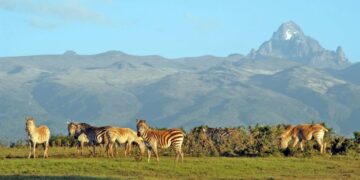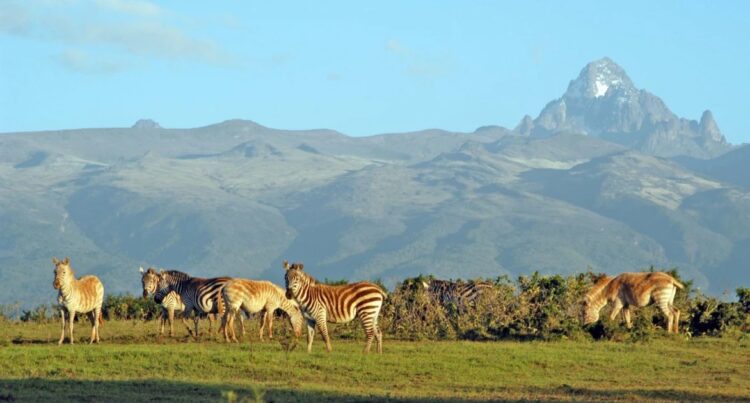By our reporter,
KAMPALA,
As the world marks World Tourism Day on September 27, every year on September 27, Uganda joins the rest of the world to celebrate the World tourism day and this year’s theme will be “Tourism and Sustainable Transformation” The 2025 theme emphasizes reimagining tourism to benefit people and the planet which means that Uganda must not only protect its natural and cultural wealth but also reimagine tourism as a driver of green growth, community empowerment and resilience. This day is a significant global observance introduced by the United Nations World Tourism Organization (UNWTO) to demonstrate to the public how tourism benefits not only the economy but also the social, political, and cultural fabric of a destination.
Uganda’s tourism sector plays a vital role in Uganda’s economy and is a source of livelihood for a significant proportion of Ugandans whereby according to the Ministry of tourism, wildlife and antiquities report released in April 2025, tourism is projected to create employment amounting to 803,000 jobs. The sector also contributes over 3.6% to Uganda’s GDP, with earnings reaching Shs 5.8 trillion, a 13.1% increase from the previous year.
Additionally, Uganda being referred as the Pearl of Africa, it boasts the country’s tourism sector which is anchored by its unique natural and cultural assets that make it a prime destination for both leisure and business travelers. According to the Uganda Tourism Satellite Account 2023, the country has over 18,783 species of fauna and flora, ranking among the top ten most biodiverse countries globally, 53.9% of the world’s remaining mountain gorilla population in Bwindi Impenetrable National Park and Mgahinga Gorilla National Park, 1,057 bird species which account for 50% of Africa’s bird species richness and Lake Victoria, Africa’s largest lake with over 100 habitable islands and Cultural and heritage sites including the Kasubi Tombs and Uganda Martyrs’ shrines, which attract religious tourism.
These attributes have contributed to Uganda’s ranking as a must-visit destination by National Geographic, CNN, and Lonely Planet. According to the tourism performance statistics report, in 2024, Uganda’s tourism sector attracted 1,371,895 international visitors which represents 89.2% of pre-pandemic levels. Globally, international tourism also rebounded strongly, with an estimated 1.4 billion international tourists worldwide, recovering to 99% of 2019 levels.
This means that the sector offers a great opportunity to citizens’ quality of life and region’s economy vitality. Therefore, this celebration underscores the potential of tourism in achieving the Vision 2040 and Sustainable Development Goals that includes poverty eradication, job creation and environmental preservation.
However, despite the country’s tourism immense potential, the sector still faces some challenges that need to be addressed and one of them is environmental degradation caused by unregulated human activities such as the oil and gas activities in the national parks, particularly Murchison Falls National Park (MFNP) that is said to be the heart and pride of Uganda’s tourism industry and has been a significant contributor to the annual tourist numbers in Uganda’s national parks.
The ongoing oil activities in the MFNP are negatively impacting Uganda’s tourism by disrupting the natural habitat and force animals to move from the park because of the noise from the construction of oil infrastructures like roads thus posing more risks such as increased human-wildlife conflicts, impacts on ecosystems, threats to tourists and potentially damaging the parks iconic status as a major tourist destination.
Another challenge is the infrastructure gap where by many tourist sites remain inaccessible due to poor roads, limited transport services and inadequate facilities. This not only affects visitor experiences but also prevents communities from fully benefiting from tourism opportunities. Transforming the sector requires investment in eco-friendly infrastructure that improves accessibility while safeguarding the environment.
Therefore, as Uganda celebrates the world tourism day, it must devise and implement long-term sustainable strategies that ensure the protection of our biodiversity while safeguarding human lives and their livelihoods. The tourism sector has emerged as a promising venue for growth. With its rich biodiversity, stunning landscapes and vibrant culture, Uganda has the potential to become a leading tourist destination in Africa. However, to achieve this, it cannot be the sole responsibility of tourism stakeholders alone. Instead, a collective effort from government, the private sector, conservationist and development partners is necessary to unlock the full economic potential of tourism in line with the Fourth National Development Plan (NDP IV).
The oil companies also need to stop the oil activities in the national parks because these activities pose a significant threat to both human lives and the broader ecosystem. By destroying critical habitats, we risk the extinction of these incredible creatures and the collapse of biodiversity. Sustainable management of national parks such as Murchison falls national park and other natural heritages around Uganda should be prioritized since they are of great importance to our economy’s tourism and future generations.








































